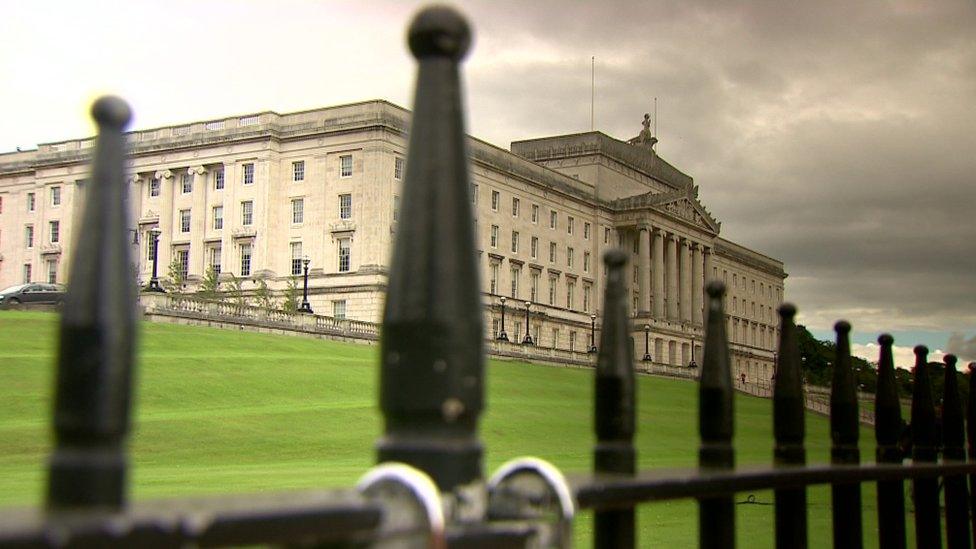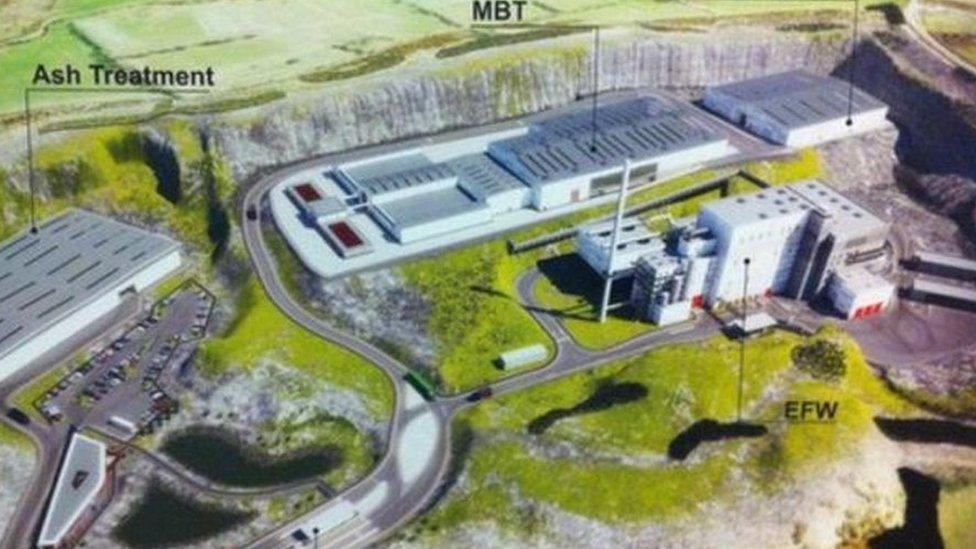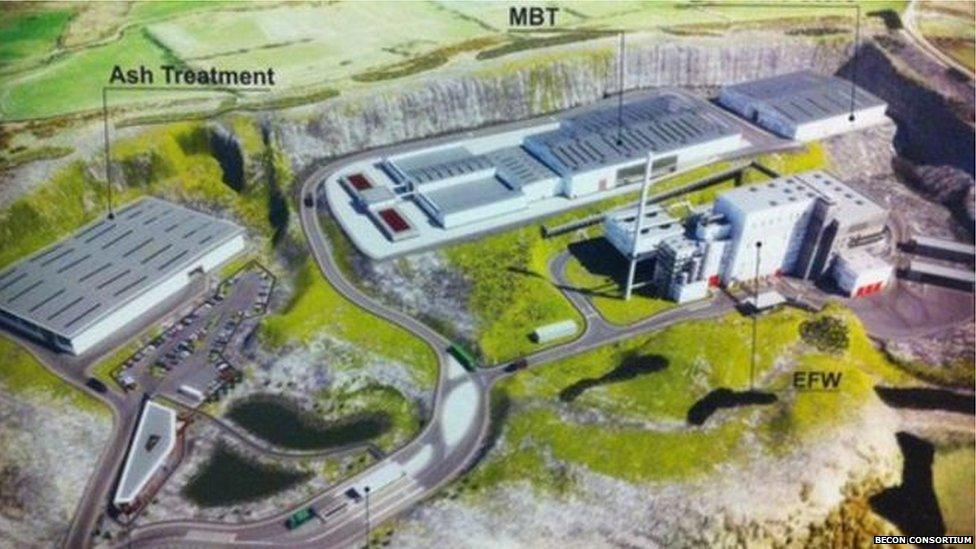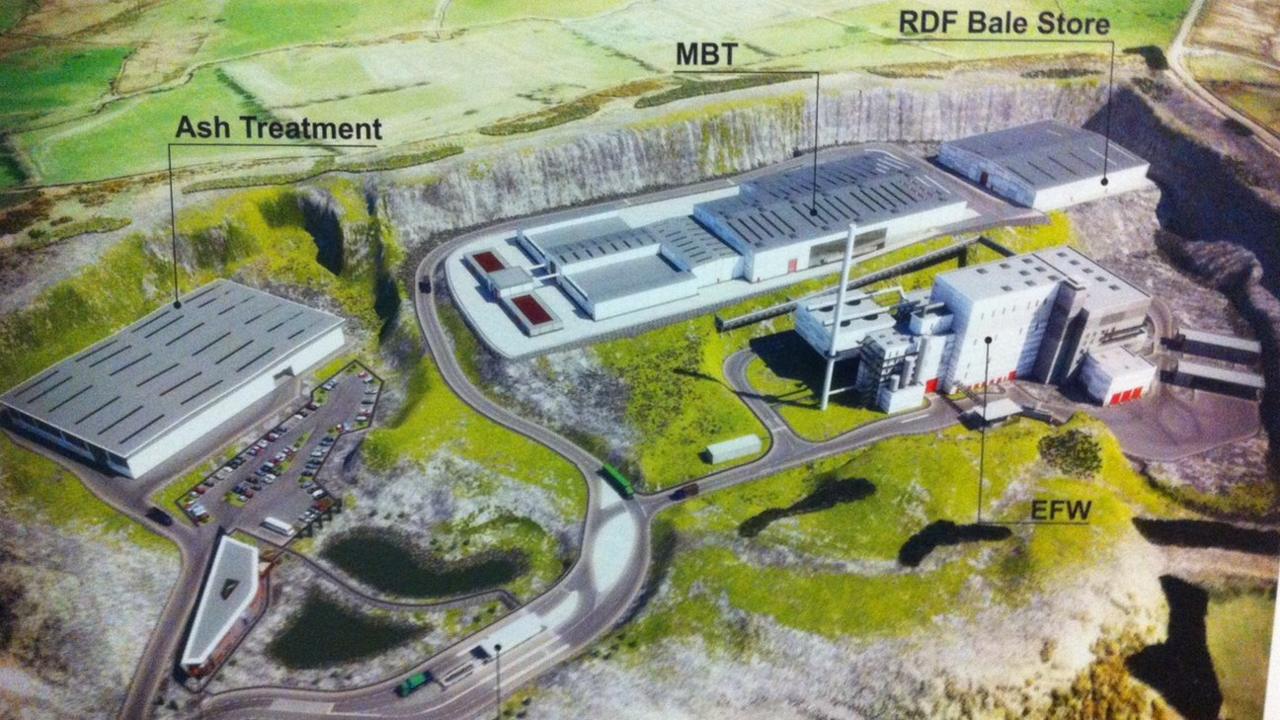Stormont: NI court to consider legal uncertainty, Supreme Court rules
- Published

With no ministers in place, civil servants have been making the decisions on running public services at Stormont for almost two years
Legal uncertainties about the powers of Stormont civil servants in the absence of devolution should be dealt with in a case due to go before the Belfast High Court, the Supreme Court has ruled.
NI's attorney general had submitted five questions to the Supreme Court, relating to the Arc21 incinerator ruling.
John Larkin was seeking clarity on a number of points.
But the court said it should be handled in the North-South interconnector case.
The landmark Arc21 ruling determined that civil servants did not have the power to approve certain decisions in the continued absence of executive ministers.
Mr Larkin's questions did not amount to an appeal of the Arc 21 judgement.
He was also seeking to establish how officials can operate in a situation where there is no programme for government in force.
'Practical reality'
On Monday, the Supreme Court in London determined that a challenge against the North-South interconnector, linking the electricity networks in Northern Ireland and the Republic of Ireland, would provide a "clear factual matrix" for the issues to be addressed.
A group of landowners had launched a legal challenge to the Department for Infrastructure's decision to approve the electricity interconnector between counties Tyrone and Meath.
The Supreme Court said the case had been put on hold while its justices considered the attorney general's questions.
Lord Kerr said that the "stay of proceedings was not appropriate" and they should now go ahead.
"Those proceedings will also have the advantage of having the courts of Northern Ireland deal with those issues by reference to the practical reality of their impact on society there, so that an insight into the outworking of the competing arguments can be obtained," he added.
A spokesman for the attorney general's office told BBC News NI that Mr Larkin had nothing to add to the Supreme Court's decision.

An artist's impression of the proposed waste facility
Northern Ireland has been without a functioning government since January 2017, when a power-sharing deal between the DUP and Sinn Féin collapsed.
Planning permission was initially granted for the Hightown waste incinerator in 2017 by the Department for Infrastructure's top civil servant, Peter May, but last year the High Court ruled that he did not have the power to give the go-ahead to the plant.
This was later upheld by the Court of Appeal, which said the decision was significant and cut across the remit of several Stormont departments.
Its decision meant the issue should have been referred to the NI Executive.
In the absence of an executive, civil servants could not take decisions usually reserved for ministers.
In November, Westminster passed legislation to give Northern Ireland civil servants more legal clarity to make decisions in the absence of ministers - but it contains a date of 26 March 2019 by which executive ministers should be re-appointed.
The bill also includes a possibility to extend that period for up to five months.
- Published6 July 2018

- Published7 August 2019

- Published6 July 2018

- Published14 May 2018

- Published15 September 2017

- Published24 September 2015

- Published12 March 2013
